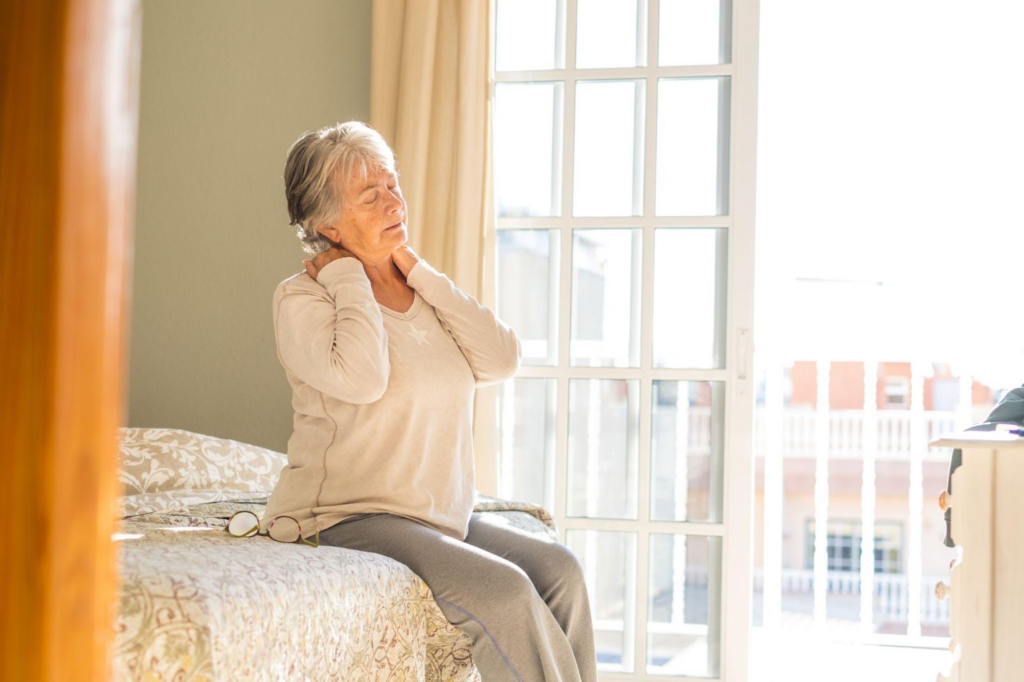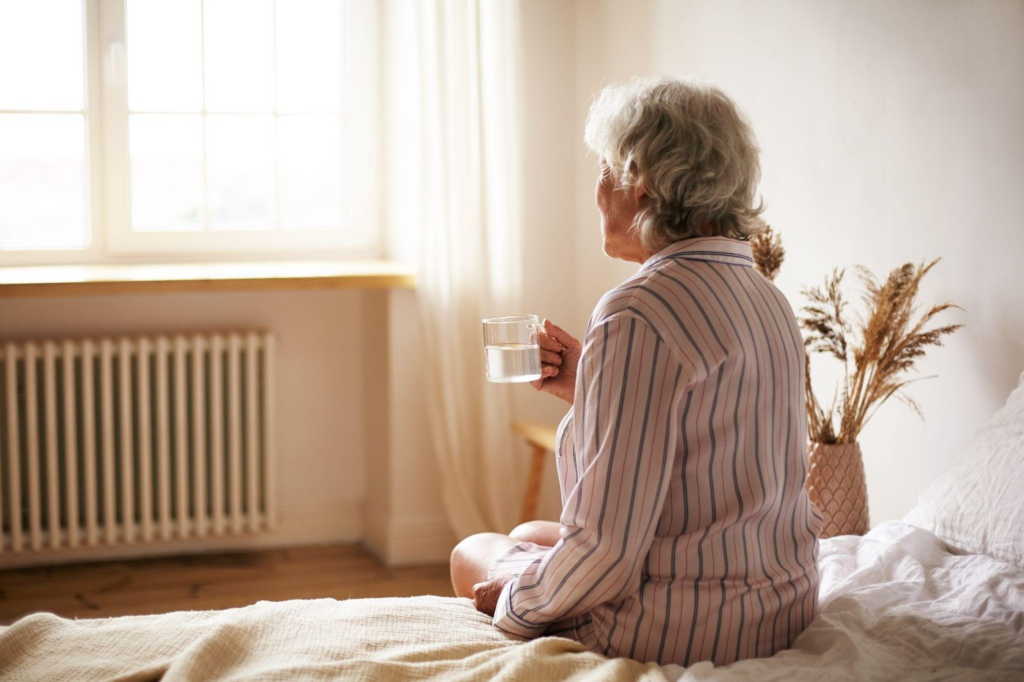Quality sleep is crucial for maintaining physical health, mental sharpness, and emotional well-being, especially for seniors.
Whether it’s creating a sleep-friendly environment with adjustable beds or establishing a consistent bedtime routine, we’ll cover everything you need to know to get better sleep and enhance your overall health.
Understanding Sleep Changes in Seniors
As we age, our sleep patterns naturally change. Many seniors find that they have a harder time falling asleep and staying asleep throughout the night.
This is due to a shift in our body’s internal clock, which can make us feel sleepy earlier in the evening and wake up earlier in the morning. Common sleep disorders also become more prevalent as we age.
Insomnia, which is difficulty falling or staying asleep, is particularly common. Sleep apnea, a condition where breathing repeatedly stops and starts during sleep, can also affect seniors more frequently.
These changes and disorders can impact overall health. Poor sleep can lead to problems with memory, concentration, and mood.
It can also increase the risk of health issues like heart disease, diabetes, and obesity. Understanding these changes is the first step toward better sleep and improved health in your senior years.
The Importance of Good Sleep

Good sleep is key for seniors’ health and well-being. Physically, quality sleep helps the body repair itself, boosts the immune system, and supports heart health. It’s also essential for managing weight, as poor sleep can increase appetite and weight gain.
Mentally, a good night’s sleep enhances cognitive function. It helps with memory, attention, and decision-making skills. Seniors who get enough sleep are less likely to experience cognitive decline and are better able to stay mentally sharp.
Sleep also has a big emotional impact on mood and emotional stability. Lack of sleep can lead to feelings of irritability, anxiety, and depression. On the other hand, good sleep promotes a more positive outlook and better emotional balance.
Common Sleep Challenges for Seniors
Many seniors face unique challenges that make it difficult to get a good night’s sleep. Here are some common issues:
- Medical conditions: Health problems like arthritis, diabetes, and heart disease can cause pain or discomfort, making it hard to sleep. Conditions like restless legs syndrome and periodic limb movement disorder can also disrupt sleep.
- Medications: Many seniors take medications that can interfere with sleep. Some drugs for high blood pressure, asthma, and depression can cause insomnia or make it harder to stay asleep.
- Lifestyle factors: Lack of physical activity can contribute to poor sleep. Exercise helps tire the body and promotes better sleep, but many seniors are less active. Poor diet, especially eating heavy or spicy meals close to bedtime, can also affect sleep quality.
- Sleep environment: The sleep environment plays a crucial role. A noisy or uncomfortable bedroom can make it difficult to fall and stay asleep. Poor lighting, uncomfortable bedding, and an unsuitable room temperature can also contribute to sleep problems.
- Stress and anxiety: Worrying about health, finances, or family issues can lead to stress and anxiety, which in turn makes it harder to sleep. Seniors may also experience loneliness, which can affect emotional well-being and sleep quality.
Tips for Improving Sleep Quality
Improving sleep quality can greatly enhance the health and well-being of seniors. Here are some practical tips:
Create a Sleep-Friendly Environment
- Comfortable bedding: Invest in a good full mattress and pillows that provide support and comfort. Consider adjustable bases to find the perfect sleeping position.
- Room temperature: Keep the bedroom cool, around 65°F (18°C), as a cooler room promotes better sleep.
- Reduce noise and light: Use earplugs, blackout curtains, or a white noise machine to minimize disruptions.
Establish a Consistent Sleep Routine
- Regular sleep schedule: Go to bed and wake up at the same time every day, even on weekends.
- Bedtime rituals: Develop calming pre-sleep routines, such as reading, listening to soothing music, or taking a warm bath.
Dietary and Lifestyle Changes
- Limit caffeine and alcohol: Avoid consuming caffeine or alcohol close to bedtime, as they can interfere with sleep.
- Balanced diet: Eat a healthy diet rich in fruits, vegetables, and lean proteins. Avoid heavy or spicy meals before bedtime.
- Regular exercise: Engage in physical activities like walking, swimming, or yoga. Aim for at least 30 minutes of exercise most days, but avoid vigorous exercise close to bedtime.
Relaxation Techniques
- Meditation: Practice mindfulness or meditation to calm the mind and reduce stress.
- Deep breathing exercises: Engage in deep breathing or progressive muscle relaxation to help relax the body before sleep.
Limit Naps

- Short and early: If you need to nap, keep it short (20-30 minutes) and earlier in the day to avoid interfering with nighttime sleep.
When to Seek Professional Help
Sometimes, improving sleep on your own isn’t enough. It’s important to know when to seek professional help. If you experience any of the following, it’s time to consult a healthcare provider:
- Persistent insomnia: Trouble falling or staying asleep for more than a few weeks
- Daytime sleepiness: Feeling excessively tired during the day despite a full night’s sleep
- Loud snoring or breathing pauses: Signs of sleep apnea, a serious condition that needs medical attention
- Mood changes: Increased irritability, anxiety, or depression linked to poor sleep
A healthcare professional can diagnose underlying issues and suggest treatments, such as therapy, medications, or lifestyle adjustments, to help you sleep better.
For seniors, prioritizing sleep is vital to enjoying a healthier, happier and more vibrant life, so consider following these tips and discover what works best for you.

Jean Smith is a fitness enthusiast and blogger who focuses on fitness and a healthy lifestyle. She is passionate about assisting people in living healthier lifestyles and is constantly on the lookout for new and creative methods to stay fit and healthy. Her articles are excellent resources for anyone interested in improving their health and fitness.
